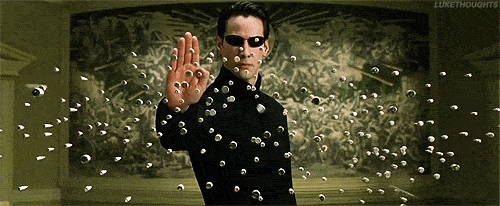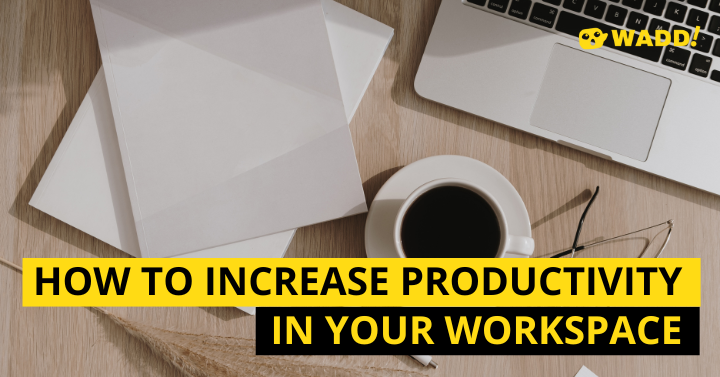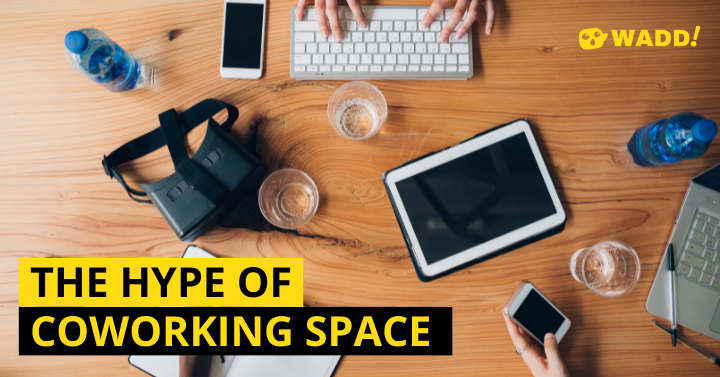At no point in history has mankind ever experienced such a high volume of information. Every day is another unprecedented day of bits and bytes.
"There are just no simple methodologies for the human brain to process, compare, and evaluate such an amount of data. While the Internet is of infinite abundance, the human information processing capacity is not." - Information Overload - The Silent Epidemic Infecting Our Digital Age Generation
Like a bad diet, we are continuously consuming this deluge of information without proper digestion.

Image source via Giphy
Studies have shown that the nature of our modern digital life environment is a contributing factor to the increase of stress and anxiety for our generation.
Without recognizing the damaging effects of information overload and take active actions to prevent or govern it, our bad online diet could lead to undesirable symptoms such as brain fog, burnout, drop in productivity, and other mental and psychological related issues.
There is no question on the value of information technology, it is in its capacity that can be overwhelming, and our habits will save us from its adverse effects. Here's the good news. There was a time that we have lived without the Internet, and it was not too long ago; hence, we still most certainly can.

When it comes to choosing a lifestyle for our own well-being, it is up to us to make a more informed decision. Image source via Giphy
6 WAYS TO PROTECT YOURSELF FROM THE NEGATIVE EFFECTS OF INFORMATION OVERLOAD
1. Learning to say 'No' - The Regime to Sustainable Productivity
As humans, we have a finite amount of time and energy. No one can absorb every bit of information out there, so do not feel guilty when you have to ignore some or a lot of it! You also do not have to feel pressured to respond to every piece of information the second it arrives.
Research has shown that people can take an average of 25 minutes to get back to the task at hand after attending to just an email interruption. (Harvard Business Review)

Image source via IdeaScale
It all comes down to our choices, habits, and responses. You do have the option to make yourself unavailable at a set of times by putting your phone aside to focus on what matters.
Learn to say no to requests or tasks that are inessential to your primary duties. Whenever possible, delegate. Make it a habit to say 'no' to any irrelevant distractions that keep you from completing your task.
2. Say No to Multitasking
There's a myriad of activities that we have to deal with day-to-day. The clutter of things to do in our minds often leads to the tendency to multitask.

Image source via College of Education & Human Development
As compared to multitasking, focussing on one thing at a time actually consumes less energy. Just as hitting the brakes and stepping on the pedal repetitively burns up more fuel, switching between tasks also drains our brainpower faster.
In fact, multitasking poses risks of its own to our psychological health. It often goes together with increasing distractibility and oversights that could compromise the quality of one's work. Contrary to doing more, heavy multitasking precipitates a drop in efficiency and productivity.
"Always-on, multitasking work environments are killing productivity, dampening creativity, and making us unhappy." (McKinsey Quarterly)
So if you find yourself inclined to shift to the next errand before completing the one in hand, write it down on a piece of paper and attend to them later. This old-fashioned way works to get things out of your head so that they do not interrupt your workflow. Resisting the instant gratification of multitasking is a good brain habit to tackle information overload.
3. Filter, Skim and Let Go
Daniel Levitin, a McGill University psychology professor and the author of "The Organized Mind: Thinking Straight in the Age of Information Overload," gave a simple illustration of shopping at the grocery store. It is like ignoring the 10000 items and going for just the 10 you need.

Image source via The Citizen
Not all information is worthwhile or what we need. So before you go down the Internet rabbit hole, ask yourself if the info you are taking in is valuable or merely a distraction and a waste of your cognitive resource.
Learn how to filter and skim through redundant information to find exactly what you're looking for. Over time, you will learn by experience to discern valuable task-relevant details from those that are not. At times, we might come across additional information of limited value by chance, useful to some extent to our decision-making. Learn to know when to let go and act without all the facts. If you find yourself still struggling to let go, it helps to ask yourself, "What's the worst that can happen?"
4. Setting Time Limits (Plan and Schedule)
This is one thing that is oversaid and shared, but it is easier said than successfully executed for many. Remember that we each have 24 hours in a day, and we all draw energy from the same resource – our brains. One needs to find the most efficient method for themselves.
Without setting time limits, it is easy to get drowned by the inundation of information. It might come as a shock to you when you find out how much time you spend on social media platforms. So, whether it is monthly, weekly, daily, or even hourly, putting a cap on time helps us to work steadily towards a goal.

Image source via Los Angeles ORT College
If there are many little tasks in hand, such as emails and follow-up calls or checking through accounts, allocate about an hour to plough through it first. Once these mental crowding items are removed, you will be able to focus more efficiently. Nevertheless, if you are not one to feel entangled by the little daily tasks, it is also advisable to start each day with the most essential thing to do while our brain's capacity is still at its optimum.
Work out a routine that works best for you so that you spend only as much time as the task is worth and make sure there are brain breaks every couple of hours in your time log.
5. There is No Shame in Rest
In a highly competitive and information-glutted society, we have taken this most fundamental self-care for granted – rest.

Image source via WebMD
With information ever-present, our boundaries between work and home have blurred. Whether we are working or surfing the net, we are still consuming energy from our brains. It is easy to fail to notice how much energy is exhausted in the process of gathering data.
We've heard of great ideas popping up during a rejuvenating shower or while journaling, but we've never heard of good ideas coming up from "powering through" after hitting the mental wall. As impressive as the human brain is, there is still a limit to what our conscious mind can handle. Our minds need rest and space for our own thinking.
With the time log, we will gain more understanding of our productivity level and its limitations. Apart from our rest at home, resting between working hours are just as vital. Halt to take breaks before you reach the limit of your capacity.

Image source via Massey University
Whether it is walking around the block, listening to music, taking a nap, or just daydream for a bit. Though these are still rather frowned upon in many office cultures, do it anyway if you must. You may be leading a cultural change in your organisation!
Contrary to popular viewpoints, these timeouts are huge adjuncts to foster productivity and creativity. What is a 15 to 30 minutes nap compared to hours long of pushing through producing and achieving nothing?
Information overload is a real phenomenon. The pressure to create and compete in this information age has led to a quantity over quality effect in many industries. To remedy the situation requires a collective change in perception and behaviour.
6. UNPLUG!
You don't need to join the monastery to give your mind a chance to reboot. Most of us spend our work life online digesting large amounts of data and go home only to jump right back into the endless stream of data.

Image source via Getty
When you unplug, you are doing your brain a favour. Disable all unnecessary notifications and get off the Internet for a few hours every day.
Here are suggestions of healthy activities to prevent information overload. (Source: Forbes)
- Connecting time (With people and nature)
- Downtime (Mundane and non-goal focus task like chores and reading)
- Time In (Time for reflection on thoughts such as journaling and time for being mindful such as meditation)
- Play Time (Entertainment)
- Physical Time (Exercise to flush out toxins and oxygenate your brain)
- Sleep Time (This is where our brain gets to reorganize. Without which, we will suffer the repercussions)
CONCLUSION
The vast majority of people around us are actually drowning in bits and bytes.

Such a hyper-connected digital world we live in is here to stay, but the freedom of choice was never taken away from us. It is up to us to protect ourselves from the negative effects of information overload.
You may have to shed some feelings of guilt and inadequacy at the start as many of us have become accustomed to the hustle and bustle, appearing busy even when we are utterly spent! Take measures to stop information overload from hurting you, causing more problems in your everyday life in the long run by changing habits today.









